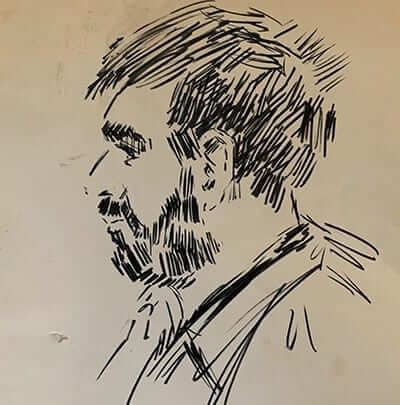If the state favors free markets over free people, if the state allows corporations to live while small businesses die, if the health of the state demands waging war in the name of public health, then the business of the state is tyranny. Not the tyranny of brown shirts or black shirts, but the tyranny of a state that polices criticism and votes to defund the police.
From such a state does resistance organize; in such a state does organized crime thrive.
How else can legitimate businesses survive without the protection of those forces that have their own monopoly on violence? Where else can people receive protection, even if the cost of safety is the cruelty of a particular penalty, of a tax on principal through the payment of a pound of flesh? What else can people do, when foreclosure is unavoidable and relief is unavailable?
That this is the choice people face, to obey the law and lose everything or break the law in order to save something, is an indictment of how politicians choose to govern.
Given this choice, the acceptable evil is better than the evil of acceptance, of acquiescence to a ruling class with contempt for the working class. This choice may be inevitable, given the use of rules to deter work and criminalize workers. This choice is understandable, given the campaign to outlaw decency and redefine deviancy.
The campaign itself is not new, but the newness of life in lockdown—of living not behind bars, but without the freedom to patronize bars and restaurants—is a chance for the state to subvert more than the livelihoods of small business owners. The campaign is an attempt to subvert laws, language, culture, institutions, history, religion, and tradition.
We are in a new world, where godliness is dirty and churchgoing is dangerous, where politics is a religion and the irreligious politicize religion, where edicts trump the reading of Acts and the performance of acts of goodness.
In this world, Christians and Jews may go underground. The rest may seek salvation through the underground economy, not because they are bad, but because they have no other way to sell goods and services.
Such a world may further communication through the prohibition of communications devices, because smartphones and tablets—the tools of the surveillance state—generate volumes of inculpatory evidence. The ones and zeros of data translate into a confession of wrongdoing.
Success depends on secrecy.
In turn, thwarting dependency on the state requires discretion. The intelligence to know where to go and what to say, the wisdom to know how to act and when to say nothing—these skills are indispensable to the survival and the success of liberty.
These skills also require the ability to socialize without social media; to start and sustain a conversation without the aid of apps or messengers.
Without these skills, bleeding edge technologies—from the screens in our pockets to the monitors on our wrists—may lead to blood in the streets. Letting the state track us is, after all, a surefire way for the state to open fire: to search without warning and shoot without firing a warning shot.
The fate of the decent summons us to oppose the vanity of fools.

